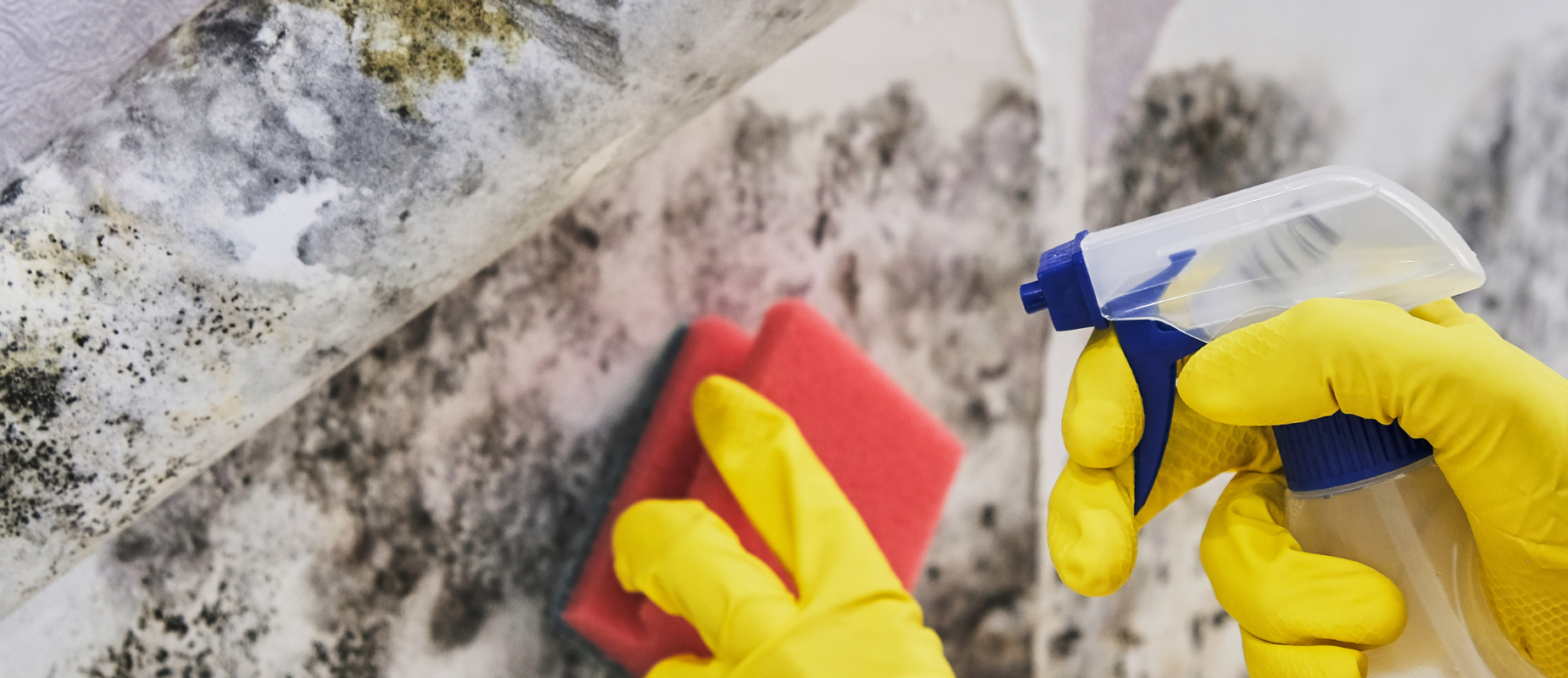
Understanding Renter’s Rights In Texas: Mold Removal
Renters in Texas have the right to request mold removal in their rental properties. Texas mold laws require landlords to provide tenants with a safe and habitable living environment.
This includes addressing any mold-growth issues. If a renter finds mold in their home, they should immediately notify their landlord and request that it be addressed.
Landlords must take action to properly remove the mold and keep it from recurring. If the landlord fails to do so, renters can file a complaint with the Texas Department of State Health Services, which will take further action.
Renters must understand their rights and take action to maintain a healthy, mold-free living environment.
Table Of Contents
- Understanding Renter’s Rights In Texas: Mold Removal
- What To Do When Your Landlord Refuses To Remove Mold
- Taking Action Against Hazardous Mold: Protecting Your Health
- The Importance Of Timely Repairs For Rental Properties
- How To Address And Remove Mold From Your Rental Property
- Exploring Legal Options For Uncooperative Landlords
- Can You Handle Mold Removal Yourself? Considerations For Tenants
- Ensuring Proper Inspection And Coverage For Mold Removal By Landlords
- Seeking Compensation For Health Issues Caused By Toxic Mold Exposure
- Navigating The Law: Renter’s Rights And Repairs In Texas
- Finding A Qualified Landlord Tenant Lawyer In Your Area
- Knowing Your Rights As A Tenant In Texas: Dealing With Mold Issues
- Identifying Liability For Toxic Mold In Rental Properties In Texas
- Navigating Disputes With Landlords Over Mold Removal: Tips And Strategies
- Forming Community Connections: Resources For Tenants Facing Mold Issues
- Educating Yourself On Local Regulations Regarding Condemnation Of Houses Due To Mold
- Resolving Conflict And Moving Forward: Maintaining A Positive Relationship With Your Landlord During The Process Of Removing Mold
- Can A House With Mold Be Condemned?
- What Are The Rules For Mold Remediation In Texas?
- Does Mold Have To Be Disclosed In Texas?
- Does Black Mold Make A House Uninhabitable?
What To Do When Your Landlord Refuses To Remove Mold
Texas tenants faced with mold in their rental property should be aware of their rights under the state’s mold laws. There are no mold regulations for rental properties, but landlords must provide a safe and habitable environment.
If your landlord doesn’t remove mold, you can sue. Mold and landlord communication should be documented.
For housing law advice, contact local health authorities or consult a licensed attorney. You can sometimes withhold rent without penalty until the mold is fixed or your lease is broken.
Prolonged mold exposure can cause serious health issues, so immediate action is essential. As a tenant, you have the right to a safe and healthy home, even if that means suing your landlord.
Taking Action Against Hazardous Mold: Protecting Your Health
Mold is classified as a hazardous substance in Texas because it can harm a house’s structure and the health of its occupants. Homeowners must follow strict laws to prevent and remediate mold growth.
Failure to do so may result in serious consequences, such as the property being condemned. Residents of the Lone Star State must understand their mold prevention and remediation responsibilities to protect their health and avoid potential legal consequences.
Proactively addressing hazardous mold can protect homeowners and their loved ones from this common household issue.
The Importance Of Timely Repairs For Rental Properties
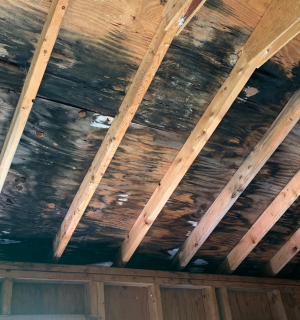
As a landlord in Texas, I believe it is critical to understand the state’s mold laws and the potential impact on rental properties. Tenants face serious health risks from mold, making timely repairs crucial.
In Texas, landlords are legally required to provide their tenants with safe and habitable living conditions. This includes immediately addressing any mold problems in the rental property.
Failure to do so may result in legal consequences, including the condemnation of the property. Landlords must keep up with maintenance and repairs to comply with mold laws, protect their tenants’ well-being, and maintain their legal standing.
How To Address And Remove Mold From Your Rental Property
As a landlord in Texas, you must understand the state’s mold laws and how they may affect your rental properties. To avoid potential legal issues, any mold growth in your rental units must be addressed and removed regularly.
This includes performing routine inspections, promptly addressing moisture issues, and acting quickly if mold is discovered. It is also critical to maintain detailed records of all mold-related incidents and property maintenance work.
Furthermore, hiring a professional mold remediation company can help ensure the problem is resolved correctly and reduce the landlord’s liability. Proactively addressing and removing mold from your rental property ensures a safe and healthy environment for tenants and protects you from potential legal consequences.
Exploring Legal Options For Uncooperative Landlords
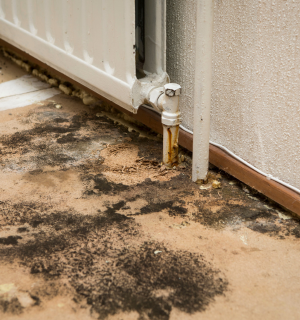
Landlords in Texas are required by law to keep their properties safe and habitable for their tenants. This includes taking care of any mold problems that may show up in the rental property.
However, not all landlords are willing to help fix mold problems, which can have a big impact on tenants’ health and well-being. In this case, tenants might need to consider their legal options to hold landlords who won’t cooperate responsibly.
This could mean putting in a complaint with the Texas Department of Health Services or getting help from a lawyer who specializes in landlord-tenant issues. Tenants need to know their rights and the laws in Texas about mold to take action against landlords who won’t cooperate.
Can You Handle Mold Removal Yourself? Considerations For Tenants
Tenants in Texas may wonder if they can remove mold on their own, especially if their rental property is at risk of being condemned. While it may appear a cost-effective solution, tenants should consider several factors before removing mold independently.
First and foremost, it is critical to understand the laws governing mold in Texas and whether or not the landlord must address the problem. Tenants should also carefully assess the extent of the mold growth and ensure that they have the necessary equipment and knowledge to safely remove it without causing further damage.
It is also critical to document all steps taken during the removal process if legal action is required against the landlord. Finally, while mold removal may appear feasible, tenants must consider all factors before starting such a task.
Ensuring Proper Inspection And Coverage For Mold Removal By Landlords
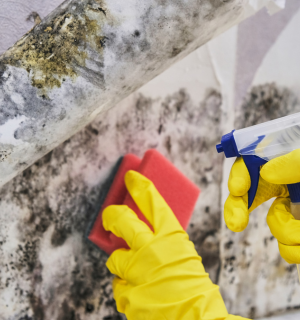
As a landlord in Texas, you must understand the state’s mold laws and your responsibilities for mold removal. To ensure proper mold removal coverage, landlords should conduct regular inspections of their rental properties.
Check for water damage, leaks, and excess moisture that can cause mold growth. Landlords should also keep detailed records of the inspections, as well as any maintenance or repairs performed to address potential mold issues.
Additionally, landlords should ensure that their insurance policies cover mold remediation if necessary. Landlords can protect themselves and their tenants from potential legal issues related to mold contamination by being proactive and up-to-date on Texas mold laws.
Seeking Compensation For Health Issues Caused By Toxic Mold Exposure
In Texas, mold can cause health issues for residents. The Lone Star State has specific laws governing mold and its effects on homes.
Toxic mold exposure can lead to health issues, making it necessary to seek compensation. To determine whether a house can be condemned for mold and the possibility of compensation, it is critical to understand the requirements and regulations outlined in Texas mold laws.
Evidence of toxic mold and proof of health issues must be provided to comply with the state’s reporting and remediation procedures. If individuals affected by mold exposure have a thorough understanding of these laws and provide proper documentation, they may be able to seek fair compensation for their suffering.
Navigating The Law: Renter’s Rights And Repairs In Texas
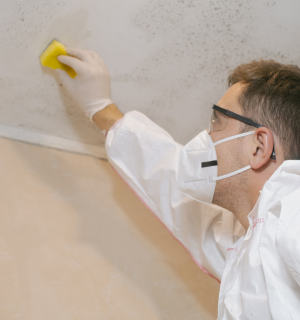
As a renter in Texas, it is important to understand your rights and the laws surrounding mold in rental properties. In the Lone Star State, landlords must follow specific regulations when it comes to addressing mold issues.
According to Texas law, if a tenant notifies their landlord of a mold problem, the landlord must take action within a reasonable amount of time. This may include fixing any leaks or ventilation problems that are causing the mold growth.
If the landlord fails to address the issue, tenants have the right to seek legal action and potentially have the property condemned if it is deemed uninhabitable due to mold. Renters must know their rights and how to navigate the law to ensure safe and healthy living conditions in their rental homes.
Finding A Qualified Landlord Tenant Lawyer In Your Area
If you are a tenant in Texas and think that your rental property has mold on it, you should learn about the state’s mold laws and rules. In the Lone Star State, landlords are in charge of keeping their properties safe and habitable, which includes taking care of any mold problems that come up.
However, if your landlord doesn’t do anything or doesn’t get rid of the mold properly, you may be able to sue them. To protect your rights as a tenant, you need to find a good landlord-tenant lawyer in your area who has dealt with mold cases before.
They can help you through the whole legal process, guide you through Texas’ complicated laws, and maybe even help you get your home declared unlivable because of mold.
Knowing Your Rights As A Tenant In Texas: Dealing With Mold Issues
Knowing your rights as a Texas tenant when dealing with mold problems in your rental property is crucial. Texas mold laws hold landlords accountable for keeping their tenants’ living spaces safe and habitable, including mold issues.
It’s important to let your landlord know immediately if you think your rental has mold and to ask for an inspection. If mold is found, your landlord has to take quick care of the problem.
Ignoring to do this may have negative effects, such as fines or even the property being condemned. Tenants must recognize their rights and champion a mold-free, safe living space.
Identifying Liability For Toxic Mold In Rental Properties In Texas
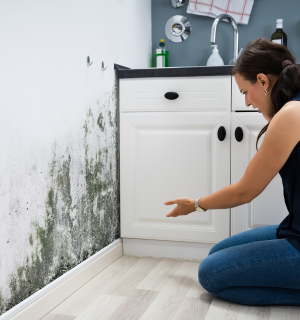
The state of Texas has rules and laws that landlords and tenants must follow regarding mold in rental properties. Both parties need to understand these laws to avoid possible liability issues.
In Texas, landlords are responsible for keeping their rental properties safe and habitable. This includes stopping and fixing mold growth. If renters find harmful mold in their rented home, they might be able to sue the landlord for not accomplishing this duty.
That being said, the tenant may also be responsible if they created conditions that allowed mold to grow. Texas mold laws say that both landlords and tenants must know how to protect themselves from possible dangers.
Navigating Disputes With Landlords Over Mold Removal: Tips And Strategies
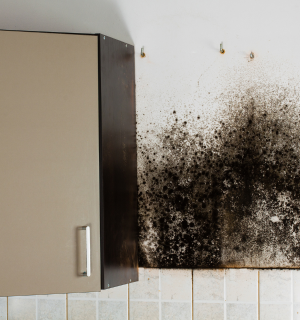
When it comes to Texas mold laws, one of the most common disagreements that tenants have is with their landlords about getting rid of mold. There are rules and regulations in Lone Star State that deal with mold growth in rental properties.
Tenants have the right to a safe and habitable place to live, which includes protection against mold. However, it can be hard to resolve disagreements with landlords.
Tenants need to know their rights and what they can do to get their landlords to fix mold problems. This includes writing down proof of mold growth, talking to their landlord in a clear and professional way, and, if necessary, getting legal help.
Tenants can handle these disagreements well and keep their living space free of harmful mold growth if they are well-informed and take action.
Forming Community Connections: Resources For Tenants Facing Mold Issues
Tenants in Texas may feel overwhelmed and unsure of their legal rights when dealing with mold in their rental properties. Making connections in the community, on the other hand, can provide valuable resources and support to tenants dealing with this issue.
The Texas Department of Health and Human Services and the Texas Tenant Advisor can provide information on mold laws and regulations for rental properties. Connecting with other tenants who have been in similar situations can also provide insight into successful mold remediation strategies.
By establishing a strong community network, tenants can better understand their options and rights when dealing with mold in their homes.
Educating Yourself On Local Regulations Regarding Condemnation Of Houses Due To Mold
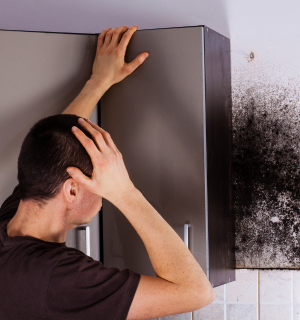
When learning about the mold laws in Texas, it’s important to also learn about the local rules for evicting people from their homes. There are rules in the Lone Star State that say when a house can be condemned because of mold growth.
It’s important to learn about the specific laws in your area because they change from city to city and county to county. This means knowing what kinds of mold are dangerous and how much can hurt your health.
To keep your home from being condemned, you should also know how to fix problems and keep them from happening. If you know the rules in your area, you can keep yourself and your property safe from any legal problems that might come up because of mold.
Resolving Conflict And Moving Forward: Maintaining A Positive Relationship With Your Landlord During The Process Of Removing Mold
Mold removal from a rental property can lead to disagreements between tenants and landlords. However, both parties must maintain a positive attitude and work together to resolve the issue.
In Texas, specific laws outline landlords’ mold removal responsibilities. As a tenant, you must understand these laws and communicate effectively with your landlord about the presence of mold.
It is critical to document any conversations or agreements made during the mold removal process. Working together and maintaining open communication allows both parties to resolve and move forward in a positive way.
Can A House With Mold Be Condemned?
In Texas, both homeowners and renters are very concerned about mold. Many people ask if mold can cause their house to be condemned, and the answer is yes.
Strict mold regulations are in place in the Lone Star State to safeguard citizens from any health risks that may arise from mold development. If high amounts of mold are discovered in a home, the local government may declare the property unfit for habitation and condemn it.
This highlights the importance of understanding Texas mold laws and taking necessary precautions to prevent and address any mold issues in your home.
What Are The Rules For Mold Remediation In Texas?
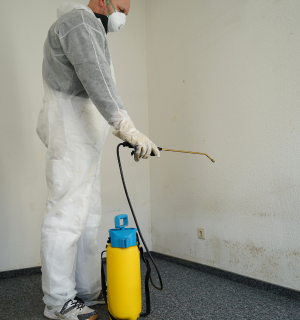
Texas has specific mold remediation regulations for homeowners and landlords to ensure property safety. According to Texas mold laws, a house can be condemned and declared unfit for human habitation if mold poses a health risk or causes structural damage.
This requires immediate action to remove the mold and repair any damage. Furthermore, the state requires licensed professionals to conduct mold assessments and remediation, with strict guidelines for containing, removing, and disposing of affected materials.
Failure to follow these rules may result in severe penalties and legal consequences. Texans must understand their rights and responsibilities when dealing with mold in order to avoid costly consequences.
Does Mold Have To Be Disclosed In Texas?
In Texas, mold is a major concern for both homeowners and potential buyers. As such, it is critical to understand the laws governing mold disclosure in the Lone Star State.
According to Texas law, sellers must disclose any known information about mold in the property they are selling. In addition, real estate agents must inform buyers about mold issues or remediation histories.
Failure to disclose this information may result in legal consequences, including the condemnation of the house. This highlights the significance of thorough mold inspection and disclosure in Texas real estate transactions.
Does Black Mold Make A House Uninhabitable?
In Texas, mold is a common issue for many homeowners. When it comes to black mold, things can quickly escalate.
Black mold endangers the health of those who live in the affected home and may result in legal consequences. Texas mold laws allow a house to be condemned if it is deemed uninhabitable due to excessive black mold growth.
If a home has an infestation of black mold, it may be unsafe to live in and may force residents to leave. Homeowners in the Lone Star State must understand their rights and responsibilities when dealing with black mold to avoid potential legal consequences.
These findings apply to all cities in Texas, including Houston, Dallas, Austin, San Antonio, Fort Worth, El Paso, and more.
Please don’t hesitate to contact us at (214) 225-3042 for any inquiries or to learn more about us. We’re here to help and look forward to hearing from you.
More Tools To Help You Sell Texas Real Estate
Get Cash For Your Texas House Today
We buy houses in Texas without the hassle and red tape. Get your no-obligation cash offer for your home and just be done. Selling in as-is condition has never been easier.
| LANDLORD AND TENANT | LEASING | LEASE AGREEMENT | HUMAN HEALTH | PHYSICAL HEALTH | INSURERS |
| INSURANCE COMPANY | INSURANCE CLAIM | MOLD TOXICITY | SAFETY HAZARDS | TOXICITY | BED BUGS |
| BED BUG BITES | JUDICIAL REMEDIES | PEST | PERSONAL INJURY CLAIMS | PERSONAL INJURY | PERSONAL INJURIES |
| LAWSUIT | LANGUAGE | EVICTED | EVICTING | EVICTION | EVICTION NOTICE |
| RESPIRATORY ISSUES | RESPIRATORY ILLNESSES | RESPIRATORY PROBLEMS | RECEIPT | HEALTH AND SAFETY | |
| MONEY | INJURIES | INJURY | HOMEOWNERS INSURANCE | HOMEOWNER’S INSURANCE | COURT |
| COMPLAINTS | WARRANTY | HURRICANE | PLUMBING | MORTGAGE | MARKET VALUE |
| MANAGEMENT | CONTRACT | CONDO | BUILDING CODES | TOXINS | TERMS OF USE |
| PRIVACY | PRICE | PERSONAL INJURY LAWYER | NEGLIGENT | NEGLIGENCE | MATTER |
| LIABLE | LANDLORD-TENANT LAWS | INVESTORS | HOUSTON, TX. | HOUSTON | FAIR MARKET VALUE |
| EXPERT | EXPENSE | DO-IT-YOURSELF | COURT ORDER | CONSTRUCTION | AUSTIN |

